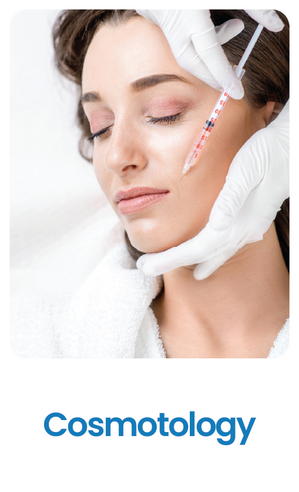Acne Treatment
Acne is one of the common skin conditions that occur among both men and women during their adolescent teenage years (before and after puberty) or well within 30 years. However, children and adults in the age group of the 30s and 40s can also occur. But, acne occurring in the thirties and forties might be related to the hormonal fluctuations.

Acne Treatment in Bangalore

Typical Acne Symptoms
Acne symptoms mainly depend on the severity of the skin condition, which also includes excessed secretion of the oil sebum on the skin. It may vary from person to person, and the appearance of the skin colour varies.
Some of the common acne signs and symptoms are the following:
-
Whiteheads
-
Blackheads
-
Pustules (Pimples)
-
Cystic Lesions / Cystic acne
-
Nodules / Nodular acne
If you are encountering any of these acne signs and symptoms, immediately consult with the best dermatologist.
Diagnosing
Acne is diagnosed based on medical information such as the review of any prescriptions or over-the-counter products that you are using or vitamins and supplements. An initial evaluation is conducted by taking a detailed medical history, acne history in your family, and the production of androgens hormones. Medications (if you are taking) and possible side-effects due to the medications as certain drugs, androgenic steroids, and supplements can cause acne eruptions.
Acne Treatment Procedures in Bangalore
Treatment of acne can be tailored depending on the detailed evaluation. There are different treatment options available at SurgiDerma cosmetic and plastic surgery center.
Acne Chemical Peel: Chemical peel is a technique applied to the affected parts of the skin to exfoliate the skin. Salicylic acid is a type of chemical peeling, which is an antibacterial and anti-inflammatory that works well acne. The technique minimizes spots and bumps, controls sebum excretion, unclogs pores, and removes acne and dead skin cells to a certain extent to make way for the new blemishing skin.
Retinoids for Acne: Retinoid medications are the mainstay for moderate to severe acne type. Retinoid when applied to the affected skin, unclog the pores, reduce the inflammation, normalize follicle cell, and minimize sebum oil production. They also prevent skin cells accumulation within the hair follicles and complete block in forming. Retinoids come in creams, lotions, and gels containing medicine derived from Vitamin A.


Oral Antibiotics for Acne:
Doctors suggest oral antibiotics that help in killing bacteria and reducing inflammation. Oral medications are best used for a short period or prescribed duration to complete the course to prevent antibiotics resistance. Antibiotics are typically helpful for mild to moderately severe acne.
Oral Isotretinoin for Acne:
Oral Isotretinoin is very effective drug for treating severe acne. It is the best alternative to treat severe affected acne if it does not respond to other treatments. Isotretinoin is very effective to prevent extensive scarring. For this type of approach, a complete evaluation is conducted before initiation.
Laser Treatment for Acne:
Although, oral medication or chemical peeling is the recommended method, laser treatment for acne and acne related scars using light-based therapies can also be used. The acne scars can be treated with the combination of chemical peeling and laser treatment procedure.
Intralesional Injections for Acne:
Nodular and cystic acne can be treated with administered injections by injecting a steroid drug directly into the Nodular and cystic lesions. It is a procedure that gives an immediate result, and the technique is based on the skin type, the severity of the acne, and the underlying cause.

Preparing for Acne Treatment
Acne treatment is tailored and results may vary individuals to individuals.
Consulting with the reputed and experienced dermatologist will help in analyzing the skin type and severity level of acne. Your doctor will identify the underlying cause before prescribing acne treatment options. The treatment is well planned and designed to meet the expectations of the patients. However, it is important to share current health conditions and past medical history for the right acne treatment technique.
Individuals who are 18 years and above can opt for the acne treatment technique. However, individuals who are lactating and pregnant women are not suitable candidates as it may lead to complications.
Dermatologist will discuss in detail each technique, whether you are a suitable candidate for certain acne treatment techniques, preparing for the right treatment, pre-care and post-care guidelines and follow-ups.






